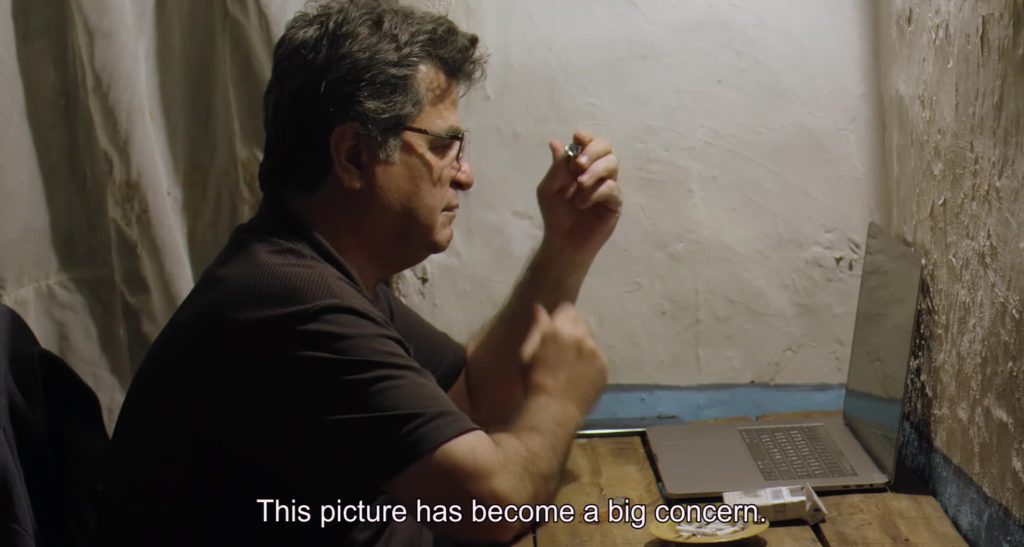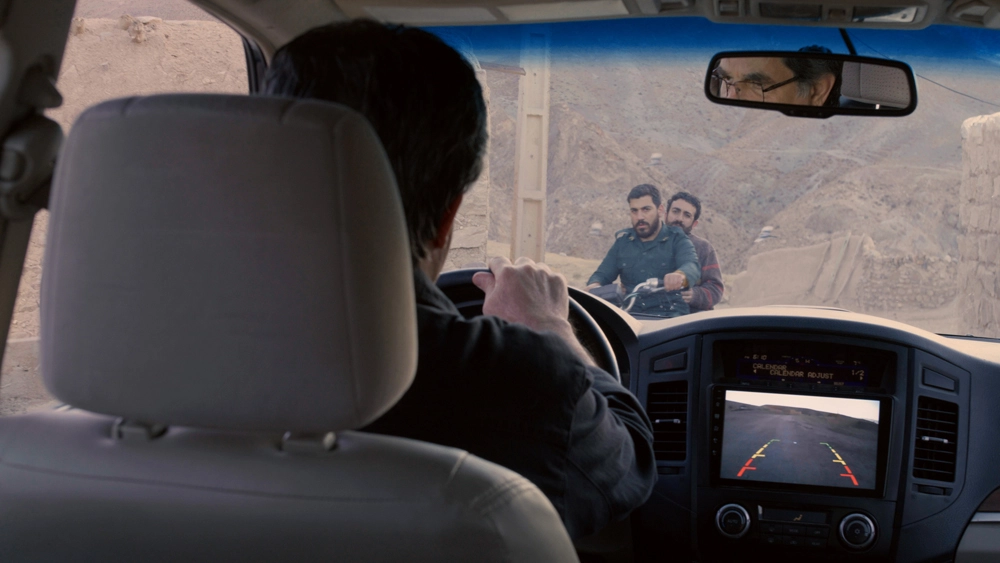A handful of recent, high-profile films found directors essaying their personal histories—Bardo: False Chronicle of a Handful of Truths, The Fabelmans, Armageddon Time and Empire of Light all, in some sense, autobiographical—real life character inspirations, direct events, identity crises, nostalgia—and a few managing little more than indulgent hagiography.
None of these pictures achieved the authentic verisimilitude of imprisoned Iranian filmmaker Jafar Panahi’s No Bears, more ambitious and realized than the others combined. Panahi, in the middle of a six-year prison term for running afoul of the Iranian government via his sociopolitical critiques, made his new picture shortly before incarceration, and it is an urgent look at an artist without a country, small town oppression, the symmetry between art and the life of its creator and slavish adherence to dogmatic beliefs that land right in the middle of a clash between rural mores and fear of outsiders.
Unlike his contemporary Asghar Farhadi, who weaves social analysis and political criticisms below the radar, Panahi has not evaded government persecution. In 2010, the filmmaker was brought up on charges of creating anti-nationalist propaganda and banned from making films for 20 years, forbidden to leave Iran or communicate outside its borders.
Undeterred, Panahi completed five clandestine films during this period, famously smuggling his 2011 This is Not a Film out of the country and all the way to the French Riviera on a USB hidden inside a Cannes-bound cake. Art will always find a way. Often approximating himself onscreen, Panahi has successfully circumvented imposed limitations by shooting This is Not a Film and 2013’s Closed Curtain entirely inside his home, while in 2015’s Taxi, in which he played a roving Tehran cabbie, by shooting his picture inside a car outfitted with multiple cameras.
No Bears, filmed in secret, finds Panahi working in his last moments of freedom (he is now jailed), opening in Turkey as conflicted paramours consider fleeing to France while engaging in a debate about the danger of fake passports. The scene has the makings of a compelling drama, but is quickly revealed a ruse, a film-within-a-film, shot and supervised by its assistance director (Reza Heydari). Panahi, in a semi-fictional semblance of his own exile, resides in small Iranian town directly across the border, monitoring the shoot on his laptop and directing with the AD over WiFi.

Panahi, having just arrived from Tehran to settle in the small border village during shooting, rents a room from gentle landlord named Sinan (Sinan Yusufoglu). Forbidden to leave the country, he nonetheless finds himself standing directly on the border, a haven for smugglers of all kinds. His every move seems under casual surveillance by the clannish locals, who would prefer that he just leave town altogether.
At issue for the townsfolk is a photograph the filmmaker may or may not have taken while out for a simple stroll—one that might have captured a betrothed local woman in the company of a man other than her hot-tempered finance. If the photo is revealed publicly, “there will be blood,” she warns. And there may be blood even if the photo does not exist.
Meanwhile, Panahi still has a film to complete, and the actors starring in the picture have their own relationship issues. The way the dynamics of these dual plots intersect sits at the inseparable crossroads of art and life, decisions to stay or leave, the inequity of women and the ignorance of unchecked religious fundamentalism that ultimately trumps all hospitality, reason and law.
In No Bears, Panahi takes aim at slavish devotion to provincial superstitions and order, and the dangers of violating such credos, offering a rebuke to small-minded fears of the outside world. Its title comes from a passage designed to scare townsfolk from venturing beyond village limits, warning of bear attacks; late in the film Panahi is informed that “there are no bears” (actually there are, but within the town itself). And before entering a council inquisition on the controversial photo in question Panahi is, surprisingly, encouraged to lie on the Quran: “It’s okay to lie if it’s for peace.” Whether the photo actually exists is never resolved, but it is hardly the point.
No Bears is an incisive critique rendered unexpectedly poignant given Panahi’s real-life dissident status. The quiet tension of the film’s closing scenes leads to an unexpected shock and potential warning for a brilliant artist daring to step across arbitrary lines of demarcation—both geographic and artistic.
While the artist Pahani may currently be locked away, he will, as always, find a way.
3 stars



